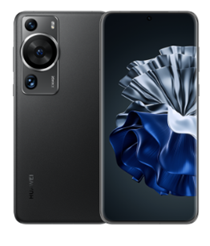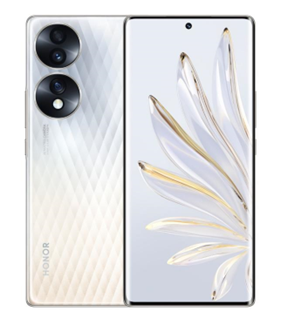by Kevin Giberson
The
Dell Inspiron 1520
under review here is the latest 15.4? in an ever-growing succession of what can be categorized as ?consumer mainstream? notebooks offered by Dell?s Home & Home Office division. Since the release of the 1520, Dell has also made available a very similar machine, the Vostro 1500, which can be purchased from the Small Business site. Unlike the Inspiron 1520, which can be configured with any one of eight different colors, the Vostro 1500 is solid black. The Vostro also provides a Windows XP option, which is unavailable in the Inspiron 1520.
It should also be noted, for the benefit of anyone who is somewhat new to this website, that there is plenty of additional information on the 1520, including an excellent
full-featured review by someone who actually purchased the 1520
, as well as a
side-by-side comparison of the 1520 and the HP dv6500t
; this comparison includes a video that is definitely worth watching for anyone considering the Inspiron 1520, the HP dv6500t or any other 15.4? consumer notebook.
(
view large image
)
Dell Inspiron 1520 Specs:
Processor: Intel Core 2 Duo T7300 (2.0 GHz/4MB L2 Cache)
OS: Microsoft Vista Home Premium
Hard Drive: 160 GB SATA @ 5400RPM
Screen: 15.4″ WSXGA Widescreen (1680 x 1050)
Graphics: NVIDIA GeForce 8600M GT 256MB
RAM: 2.0GB DDR2 SDRAM @667 MHz (2 x 1GB)
Optical Drive: 8x CD/DVD burner (DVD+/-RW) w/Double Layer Support
Battery: 9-cell lithium ion
Wireless: Intel 4965AGN
Weight: 6.4 lbs
Dimensions: 1.47-1.65? (H) x 14.12 ? (W) x 10.59″ (D)
Ports/Slots: 1 IEEE 1394 (FireWire); 4 Universal Serial Bus (USB 2.0); 8-in-1 Memory Card Reader; VGA Out; S-Video; RJ-45 Ethernet LAN; RJ-11 Modem; ExpressCard 54mm; stereo in, headphone/speaker out and dual digital mics
Initial Impressions
(
view large image
)
This Inspiron 1520 weighs about six and a half pounds and is considered a mainstream consumer notebook. Though Dell allows customization of the lid in up to eight different colors, our model has a conservative looking black lid. Because of that our machine lacks some of the consumer flair a ?Flamingo Pink? lid would have offered. Nonetheless, my first impressions had to do with a couple of things that distinguish the 1520 from its predecessors:
The overall look is very different, in a good way.
The hardware, particularly in the form of graphics processing, will allow the 1520 to perform about as well as any notebook on the market, with the exception of outlandishly expensive gaming machines that lack any concessions with respect to size, battery life and cost.
These two characteristics are what make the 1520 such an impressive achievement. I actually briefly owned the previous Inspiron generation’s e1705 model, and
reviewed the prior-generation e1405
thin-and-light notebook. I must say, the look of the current lineup is immeasurably more appealing. The old silver-and-white style always got me thinking of things like shag carpet and popcorn ceilings: sure, one can make a case for these innovations, just as one can make a case for thick white plastic trim around a notebook, but in the end (which usually comes within a matter of weeks if not months), the style grows tired, the initial promise hollow. The new Inspiron series design is cleaner, simpler and more tasteful. A cousin of the 1520, which shares its look, is the AMD-based Inspiron 1521.
Purchasing Considerations
Though this notebook was sent by Dell for review purposes and not purchased, I wanted to touch on the above topic, simply because there is something of an art to purchasing a Dell consumer notebook. There are many decisions to make, and like all decisions, they carry with them the opportunity for regret or satisfaction. I heartily endorse
this web site?s forums
for a little glimpse into the thought, action and subsequent level of satisfaction of other buyers.
As of this writing, deliberately moving along the Dell purchasing highway results in:
An Inspiron 1520 with a fairly basic configuration, but one more than adequate for general media and office tasks, for just over $900.
A deluxe performance configuration, virtually identical to this review machine, for just over $1500.
These prices reflect no special discounts or coupons, just today?s standard upgrades and reductions, which are plainly available to anyone who orders a 1520 today. In any case, at the high end particularly, these prices strike me as very competitive, and a savvy shopper who finds coupons, buys their own memory and times the Dell marketing promotions can do better on price.
One thing I found interesting while configuring a couple of 1520s on the Dell site was the price of a RAM upgrade from 2GB to 4GB: $850. Had I selected a higher-priced starting point, meaning a more full-figured set of warranty and support options, the cost of these 2 gigabytes of RAM would have moved away from the direction of a cool grand, but not by much. I saw no mention of this upgrade including a complimentary iPhone or round-trip flight to London, but it is there and available. That said, I would definitely opt for the T7300 CPU and the 8600M GT graphics included in this review model, if at all possible. While these enhancements will probably add three or four hundred dollars to the final price, they are well worth the cost and will almost certainly give the 1520 a longer useful life.
Design
(
view large image
)
As noted, I like the look of the Inspiron 1520 and see it as a vast improvement over the Inspiron e1505, the 1520?s predecessor. However, one thing I?ll mention is that my own preference is the black lid of this review model because I find, in pictures at least, that the machines with colored lids have too much color for me. Two distinct colors, in this case silver and black, are just about right. I also like the aforementioned
Vostro 1500
, very similar to this 1520 and available at the Dell Small Business site, because of the all-black look, including a black keyboard, and the possibility of Windows XP. Though many won?t, I see a black keyboard and XP as decided advantages.
Also a welcome change is the placement and position of the keyboard and touchpad. The prior line of Inspirons featured a somewhat odd shaped keyboard that was set very close to the LCD, and a rather large touchpad placed in the middle of a vast sea of silver plastic. While this did allow the palm rests to accommodate even the most monstrous palms, the new Inspiron line, as represented by this review 1520, has a slightly smaller touchpad and a more centered keyboard; this redesign makes for more comfortable typing and touchpad operation, besides being more aesthetically harmonious.
(
view large image
)
Build
The Inspiron 1520 feels very solid. The only issue, which has been mentioned elsewhere, is the screen latch, which does have some play. Aside from this lack of a nice, snug fit, the latch did not bother me, and I found nothing in the build quality that would make me hesitant to purchase a 1520. Firm but gentle pushing and prodding revealed no flex or weakness.
Input and Output Ports
The Inspiron 1520 has the following ports selection:
(4) USB 2.0 Ports
Integrated 10/100 LAN and 56K Modem
IEEE 1394a
8-in-1 Card Reader
VGA Video Output and S-Video
Stereo In, Headphone/Speaker Out and Dual Digital Mics
ExpressCard 54mm Slot
Left view of Inspiron 1520 ports (
view large image
)
Right view of Inspiron 1520 ports (
view large image
)
Front view of Inspiron 1520 with buttons (
view large image
)
Rear view of Inspiron 1520 with ports and battery (
view large image
)
The screen
(
view large image
)
Color and brightness were both good on the WSXGA glossy LCD. While I like and would myself choose this option, other resolutions are available: 1280×800 WXGA, in both glossy and non-glossy, and 1440×900, glossy only. This represents improved LCD variety and is a major selling point of the 1520; there is something for nearly everyone. Careful scrutiny revealed only one utterly trivial imperfection in the screen: an eighth of an inch or so of uneven backlighting at the bottom of the LCD, which was only visible when I looked very closely while running a screen saver with a dark background. There has been
some discussion in this site?s forums
about ?grainy? LCDs in the 1520, but I detected none of this. However, I am admittedly not a good cohort for those studying LCD perfection; generally (but not always) I?m okay with the screens I use. Everest Home lists the screen as an SEC3350, a Seiko Epson manufactured LCD.
(
view large image
)
Graphics
The NVIDIA GeForce 8600M GT is currently among the cream of the crop in notebook GPUs. Athough RivaTuner indicated that the 8600m in the Inspiron 1520 had DDR3 memory, in reality it is DDR2, which may be dissapointing to some. All the same, it’s a powerful card and there were no graphics-related problems during my time with the 8600M. For those interested in gaming considerations, there is plenty of
real-world information in this web site?s forums
.
Sound
As always, or almost always, when discussing notebook sound: more than adequate for getting the gist, feel and intent of what?s being played, but definitely lacking in bass. Headphones or external speakers will provide a much more lifelike experience.
Multimedia Features
This 1520 came with a remote, snugly ensconced in the ExpressCard slot, as well as an array of physical media buttons on the front of the notebook. Both the built-in buttons and the remote worked as expected, forwarding and pausing and muting in accordance with my wishes.
Processor and Performance
Thanks to the very strong components, performance was always good, regardless of the stress put on system resources such as RAM and CPU. The new Santa Rosa platform coupled with an Intel T7300 CPU, together with a stronger GPU, outperformed my ?old? T2400-based Dell Precision M65 by a wide margin on all benchmarks.
For prospective buyers, it may be worth adding that this review 1520?s configuration is worth considering if one is looking for excellent performance while keeping the price reasonably modest. The T7300 is the cheapest available CPU that comes with 4MB of Level 2 cache, the 8600M GT GPU will provide optimal graphics performance, and anything less than 2GB RAM will significantly hinder performance.
Benchmarks
Super PI, used as a CPU benchmarking tool by calculating pi to 2 million digits of accuracy:
S
uper Pi comparison results:
Notebook
Time
Dell Inspiron 1520 (2.0GHz Intel T7300)
0m 59s
Dell XPS M1330 (2.0GHz Intel Core 2 Duo T7300)
0m 58s
Lenovo ThinkPad X61 (2.0GHz Intel Core 2 Duo T7300)
1m 01s
Lenovo 3000 V200 (2.0GHz Intel Core 2 Duo T7300)
0m 59s
HP dv2500t (1.80GHz Intel 7100)
1m 09s
Lenovo ThinkPad T61 (2.00GHz Core 2 Duo Intel T7300)
0m 59s
Lenovo ThinkPad T60 (2.00GHz Core 2 Duo T7200)
1m 03s

Toshiba Satellite P205-S6287 (1.73 GHz Core 2 Duo Intel T5300)
1m 24s
Toshiba Satellite A205 (1.66GHz Core 2 Duo)
1m 34s
HP Compaq 6515b (1.6GHz AMD Turion 64 X2 TL-52)
2m 05s
HP dv6000t (2.16 GHz Intel T2400)
0m 59s
Dell Inspiron e1705 (2.0GHz Core 2 Duo)
1m 02s
PCMark05 comparison results:
Notebook
PCMark05 Score
Dell Inspiron 1520 (2.0GHz Intel T7300, NVIDIA 8600M GT)
4,616 PCMarks
Dell XPS M1330 (2.0GHz Intel Core 2 Duo T7300, NVIDIA GeForce Go 8400M GS)
4,591 PCMarks
Lenovo ThinkPad X61 (2.0GHz Intel Core 2 Duo T7300, Intel X3100)
4,153 PCMarks
Lenovo 3000 V200 (2.0GHz Intel Core 2 Duo T7300, Intel X3100)
3,987 PCMarks
Lenovo T60 Widescreen (2.0GHz Intel T7200, ATI X1400 128MB)
4,189 PCMarks
HP dv6000t (2.16GHz Intel T7400, NVIDA GeForce Go 7400)
4,234 PCMarks
Fujitsu N6410 (1.66GHz Core Duo, ATI X1400)
3,487 PCMarks
Alienware M7700 (AMD Athlon FX-60, Nvidia Go 7800GTX)
5,597 PCMarks
Sony Vaio SZ-110B in Speed Mode (Using Nvidia GeForce Go 7400)
3,637 PCMarks
Asus V6J (1.86GHz Core Duo T2400, Nvidia Go 7400)
3,646 PCMarks
3DMark05 comparison results:
Notebook
3D Mark 05 Results
Dell Inspiron 1520 (2.0GHz Intel T7300, NVIDIA 8600M GT)
5,348 3DMarks
Dell XPS M1330 (2.0GHz Intel Core 2 Duo T7300, NVIDIA GeForce Go 8400M GS 128MB)
3,116 3DMarks
HP Compaq 6510b (2.20GHz Intel Core 2 Duo T7500, Intel X3100)
916 3DMarks
HP Compaq 6515b (1.6GHz AMD Turion 64 X2 TL-52, ATI x1270)
871 3DMarks
HP dv6000t (2.16 GHz Intel T7400, NVIDA GeForce Go 7400)
2,013 3D Marks
Dell Inspiron e1705 (2.0GHz Core Duo, ATI X1400)
1,791 3D Marks
Acer TravelMate 8204WLMi (2.0GHz Core Duo, ATI X1600 256MB)
4,236 3DMarks
Alienware Aurora M-7700(AMD Dual Core FX-60, ATI X1600 256MB)
7,078 3D Marks
Lenovo ThinkPad T60 (2.0GHz Core Duo, ATI X1400 128MB)
2,092 3D Marks
Asus V6Va (2.13 GHz Pentium M, ATI x700 128 MB)
2,530 3D Marks
Fujitsu n6410 (1.66 GHz Core Duo, ATI X1400 128MB)
2,273 3DMarks
Dell XPS M1210 (2.16 GHz Core Duo, nVidia Go 7400 256MB)
2,090 3D Marks
3DMark06 comparison results:
Notebook
3DMark06 Score
Dell Inspiron 1520 (2.0GHz Intel T7300, NVIDIA 8600M GT)
2,905 3DMarks
Dell XPS M1330 (2.0GHz Intel Core 2 Duo T7300, NVIDIA GeForce Go 8400M GS 128MB)
1,408 3DMarks
Samsung Q70 (2.0GHz Core 2 Duo T7300 and nVidia 8400M G GPU)
1,069 3DMarks
Asus F3sv-A1 (Core 2 Duo T7300 2.0GHz, Nvidia 8600M GS 256MB)
2,344 3DMarks
Alienware Area 51 m5550 (2.33GHz Core 2 Duo, nVidia GeForce Go 7600 256MB
2,183 3DMarks
Fujitsu Siemens Amilo Xi 1526 (1.66 Core Duo, nVidia 7600Go 256 MB)
2,144 3DMarks
Samsung X60plus (2.0GHz Core 2 Duo T7200, ATI X1700 256MB)
1,831 3DMarks
Asus A6J (1.83GHz Core Duo, ATI X1600 128MB)
1,819 3DMarks
HP dv6000t (2.16 GHz Intel T7400, NVIDA GeForce Go 7400)
827 3DMarks
Sony Vaio SZ-110B in Speed Mode (Using Nvidia GeForce Go 7400)
794 3DMarks
Samsung R20 (1.73GHz T2250 and ATI 1250M chipset / GPU)
476 3DMarks
HDTune results:
Keyboard and Touchpad
Dell Inspiron 1520 keyboard (
view large image
)
Keys are responsive and have good travel. Overall, I?d say Dell has done an excellent job with the 1520?s keyboard, both in terms of the feel and the new placement that doesn?t err northward the way the last-generation Inspirons did, especially the e1505 and e1705. Individual key placement makes sense, being more or less standard, and the half-height function keys are consistent with, and just as comfortable as, their larger brethren. The touchpad, which is smaller than that of the e1505, is eminently usable and did everything I expected of it with no discomfort or untoward behavior.
Battery
Life
Under fairly heavy usage, e.g., a lot of hard drive activity, wireless going and the screen set to maximum brightness, I managed to run on the battery for almost three hours. Very light usage and a dim display, but wireless still running, yielded an additional hour or so. I expected a greater disparity, given that my usage for the two tests was at opposite ends of the spectrum, but I did have wireless enabled for the light-usage test, and both times seemed fairly strong for a machine with this power. With a little tweaking, I?m sure others could squeeze more life out of the 9-cell battery.
Heat and Noise
The 1520 was remarkably quiet (virtually silent, in fact) the whole time I had it, and heat was never a problem. The bottom of the unit became a little warm after protracted heavy activity, but not unusually so.
Service and Support
I have used Dell support in the past and have always been satisfied, in the end, with the experience, but I had no reason to contact support regarding this 1520.
Software
Being a creature of habit, I removed most of the ?trialware,? along with some other common programs I loathe, as soon as I received the notebook. I was barely paying attention while doing this, but the whole process for this review notebook seemed to go very quickly. There were no apparent software issues, though I do find myself longing for Windows XP whenever I use a Vista machine. The availability of XP is reason #2 for my seriously considering the Vostro 1500 if I were in the market for a high-powered 15.4? notebook at a reasonable price.
Conclusion
Much of what I found while using the
Inspiron 1520
is consistent with (to the point of being almost identical to) what has been written elsewhere. There was really only one thing about this notebook that bothered me, my preference for the all black Vostro 1500 notwithstanding: the play in the screen latch mechanism when the notebook is shut. Is this a big deal? I would say no, not at all.
There are so many positives, including the overall build quality, and so much flexibility in terms of configuration, the 1520 would seem to make a lot of sense for a wide range of notebook users, and a little bit of latch looseness should not be a determining factor. There are many fine notebook deals in the Sunday ads, as well as online, but there is often something about these machines, such as the keyboard, the graphics or the resolution, that would make me reluctant to purchase one of them. The 1520, or the Vostro 1500, for that matter, can be configured just right. If I weren?t already happy with my two laptops and in no hurry to get a replacement, I?d definitely consider the Inspiron 1520 or its nearly identical sibling, the Vostro 1500.
Pros:
Excellent performance with the right configuration
Solid, inexpensive multimedia notebook with more basic hardware
Good screen
Wide variety of LCD resolutions, configurable by user
Well built
Nice appearance, with user-selectable colors
Very good keyboard
Good battery life
Runs quiet
Stays cool
Cons:
Dual LCD latch does not hold as firmly as it should
Window XP is not an option (though it is with the Vostro 1500)









